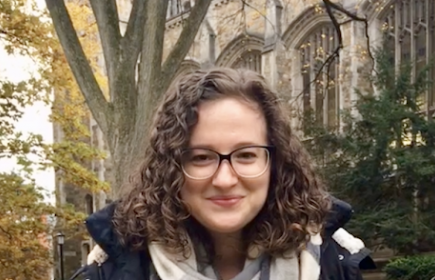

The hallmark of the University of Michigan School for Environment and Sustainability's (SEAS) master’s program is its interdisciplinary focus. This focus can be extended even further through the pursuit of a dual degree. Because the school is part of one of the greatest research universities in the world, there are many options. Each environment and sustainability specialization provides an excellent foundation for earning a dual degree.
Our formal dual-degree programs with the following disciplines have been approved by U-M's Rackham Graduate School:
Engineering (2.5 years, 54 credits):
This program prepares students to protect, restore, and create contrived and natural systems that are socially, environmentally, and economically sustainable. It is administered jointly with the University of Michigan’s College of Engineering. Students may choose from three ESS specializations: sustainable energy systems, sustainable design, and sustainable water resources. Students graduate with a master of science (MS) in environment and sustainability and a master of science in engineering (MSE).
Business (3 years, 77 credits):
This program equips students with the skills and knowledge to create environmentally and economically sustainable organizations as executives, managers, and environmentalists. The program is administered by the Erb Institute for Global Sustainable Enterprise on behalf of SEAS and University of Michigan’s Stephen M. Ross School of Business. Students graduate with a master of science (MS) in environment and sustainability and a master of business administration (MBA).
Urban and Regional Planning (3 years, 75 credits):
This program provides students with the analytical skills, theoretical and scientific foundation, and socio-behavioral understanding to become urban planners, preservationists, policy analysts, or environmental advocates. It is administered jointly with the University of Michigan’s Taubman College of Architecture and Urban Planning. Students graduate with a master of science (MS) in environment and sustainability and a master of urban and regional planning (MURP).
Public Policy (3 years, 75 credits)
This program provides students with the opportunity to study environment and sustainability issues through the lens of public policy analysis. It is administered jointly with the University of Michigan’s Gerald R. Ford School of Public Policy, and is designed to provide a model for preparing a new generation of graduates skilled in addressing important topics like renewable energy and climate change using policy analysis techniques. Students graduate with a master of science (MS) in environment and sustainability and a master of science in public policy (MPP).
Law (4 years, 104 credits):
This program trains students interested in either corporate law or trial practice to integrate knowledge related to natural resources and environmental problems with methodologies and skills inherent in the legal profession. It is administered jointly with the University of Michigan’s Law School. Students graduate with a master of science (MS) in environment and sustainability and a juris doctor (JD).
Self-initiated dual degrees
You can also combine your SEAS specialization with any appropriate unit within the university's 18 other schools and colleges in your pursuit of a master's degree. Close to one-third of our master's students elect to pursue a formal or self-initiated dual degree.
Our students have initiated dual degrees that combine a SEAS Master of Science with:
- Design
- Ecology and Evolutionary Biology
- Economics
- Education
- Landscape Architecture
- Social Work
- Sociology
Rackham Graduate School guidelines allow dual-degree students to double count one-sixth of the total credits normally required to complete both programs.
How to apply for a dual degree
Dual-degree students must apply to each program at its respective school. Each school needs a separate application and supporting materials (transcripts, letters of recommendation, résumé, test scores, and statement of purpose), in addition to the materials supplied to Rackham Graduate School. If an applicant is admitted to both programs, then the applicant may choose to pursue a dual-degree program. Each school/program must be notified of your decision. In your statement of purpose, you may indicate that you are interested in pursuing a dual-degree program.
Additional information on how to apply is available through Rackham Graduate School.






